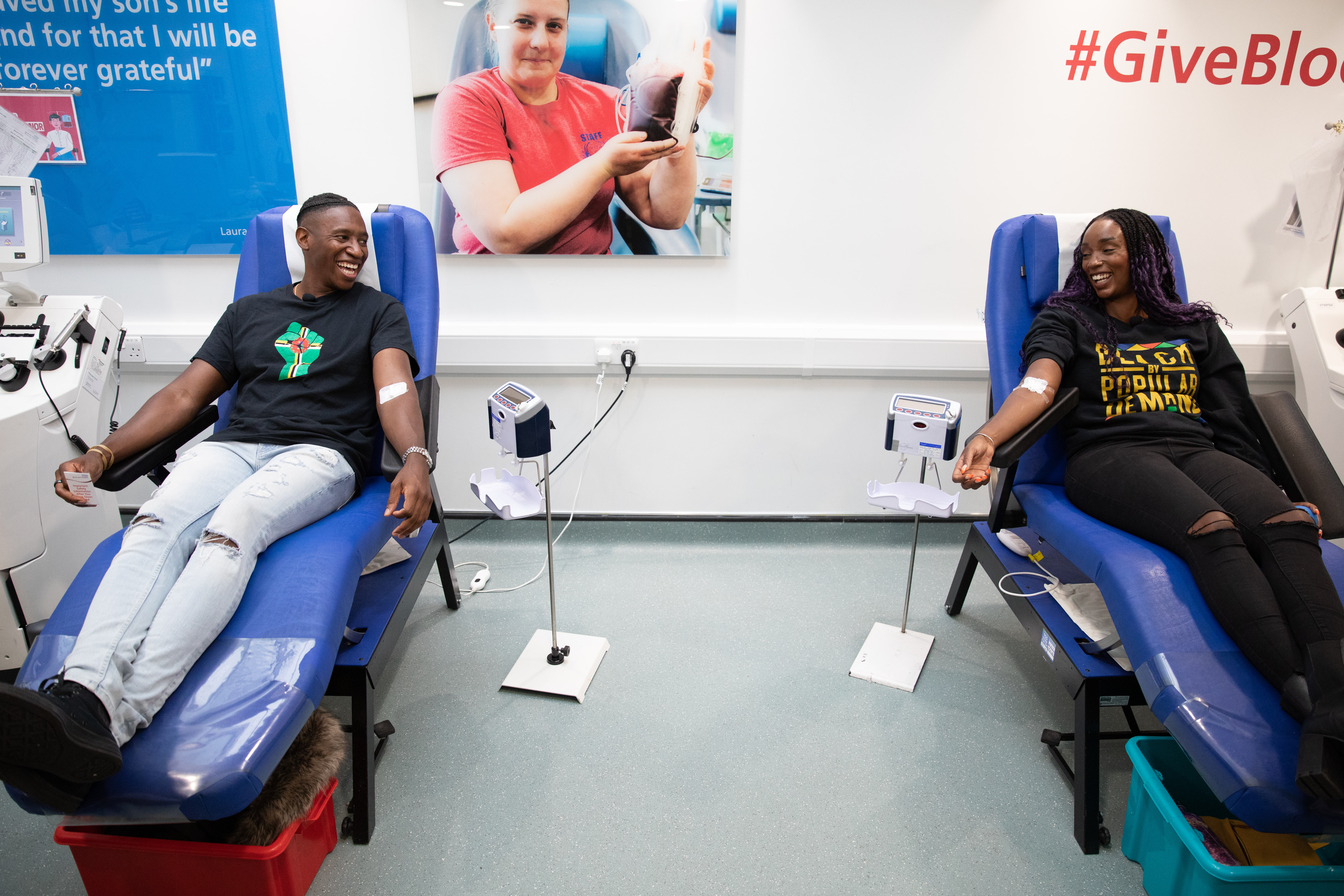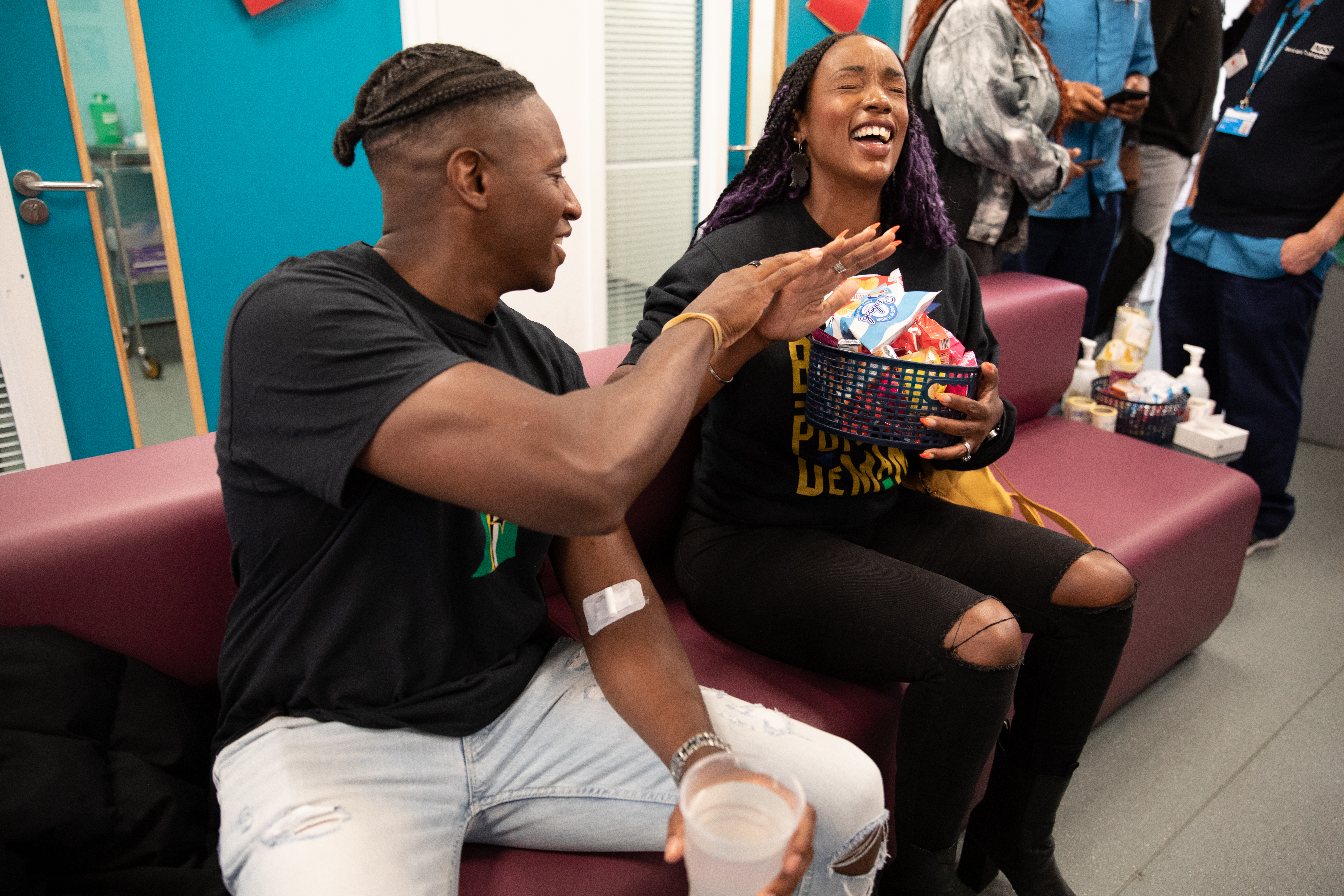Life-saving siblings
With just 3% of blood donors in England sharing the life-saving combination of genes that make up the Ro subtype, it’s fair to say it’s rare.
Not only rare, Ro blood is also vital in the treatment of sickle cell disorder. Sickle cell disorder can be life-threatening, causing extreme pain, stroke, organ failure and blindness, and is in many cases only treatable with blood transfusions.
During Sickle Cell Awareness Month in September, we campaigned to highlight that patients being treated with for the condition with regular blood transfusions need, on average, the support of 100 donors every year.
Life-saving siblings Kishma and Gemel are two of those donors, and what’s more, they donated blood for the fiftieth time together this summer.
Both Kishma and Gemel have the Ro subtype.

“I gave my fiftieth blood donation with my brother in July,” says Kishma. “I have been donating blood for over 20 years and Gemel for about 15 years. We were so proud to reach this milestone together.”
The siblings gave their landmark donations at the West End Donor Centre, London.
“I started donating blood at college when I was 17, a van turned up and I just thought, why not?” says Kishma. “Gemel, who is my younger brother started giving blood a few years later and was first inspired by the appeals at the time for the late singer Lyden David Hall, who needed blood and a stem cell transplant after being diagnosed with Hodgkin’s lymphoma.
It is an anonymous gift, but it is one of the greatest gifts you can give
“As time has gone on, we have both learned more about sickle cell and that we both have the Ro subtype, so giving blood became even more important to us.”
 Many people living with sickle cell disorder require a blood transfusion every four to six weeks, but around half of those transfusions are not currently a best possible match.
Many people living with sickle cell disorder require a blood transfusion every four to six weeks, but around half of those transfusions are not currently a best possible match.
(Picture: Kishma fends Gemel away from the post-donation snacks)
This year, the NHS urgently needs 12,000 new Black donors to regularly give blood to treat sickle cell disorder. Around half of people of Black heritage have the blood types needed to treat patients with sickle cell disorder.
“We love to encourage our friends and family to give blood,” says Kishma. “Giving blood can make other people lives so much richer and can give them more time with their loved ones.
“It is an anonymous gift, but it is one of the greatest gifts you can give.”
